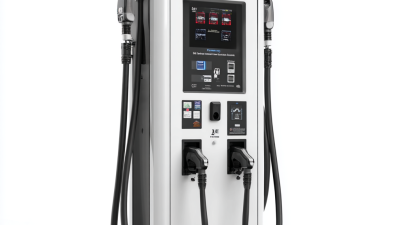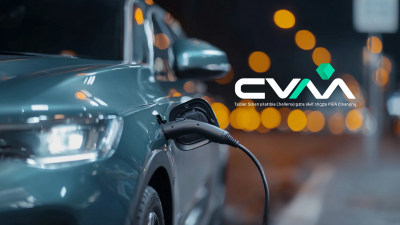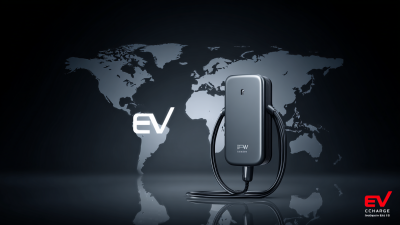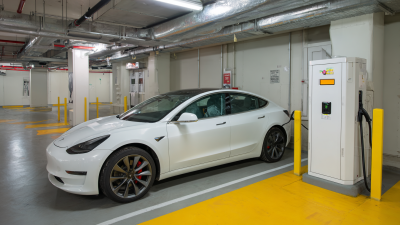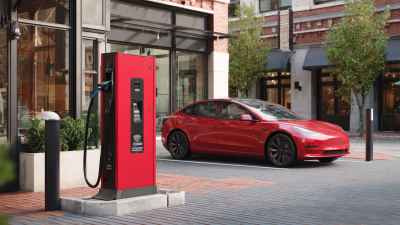As the electric vehicle (EV) market continues to surge, with sales projected to reach 28 million units by 2030 according to the International Energy Agency, the need for efficient and diverse EV home charger solutions becomes increasingly critical for every EV owner. The transition to electric mobility is not solely about the vehicles themselves but also about creating a robust charging infrastructure that caters to a range of user needs. Innovations in EV home chargers are paving the way for faster, more efficient, and user-friendly solutions, ultimately enhancing the overall EV ownership experience.

Reports indicate that nearly 80% of EV charging occurs at home, emphasizing the significance of developing versatile charging options that accommodate various home setups and energy sources. In this blog, we will explore the latest advancements in EV home charger technology and the myriad benefits they offer to electric vehicle owners, ensuring a seamless charging experience tailored to modern lifestyles.
The rise of home EV charging solutions has become a significant trend, driven by a surge in electric vehicle adoption. According to a recent report by the International Energy Agency (IEA), global electric car sales reached 10 million units in 2022, showcasing a staggering 55% increase compared to the previous year. As more consumers transition to electric vehicles, the demand for at-home charging infrastructure is expected to grow exponentially. Projections indicate that the number of home chargers could exceed 30 million by 2030 in the United States alone, as homeowners seek convenient charging options to meet their daily needs.
Market data further emphasizes this trend, revealing that the home EV charger market is expected to grow at a compound annual growth rate (CAGR) of 26% from 2023 to 2030. Innovations such as smart chargers, which allow users to monitor and control charging sessions via mobile apps, are increasingly appealing to tech-savvy consumers. Additionally, energy management systems are being integrated with home chargers to optimize charging times based on energy rates, promoting both cost savings and efficiency. As EV adoption continues to rise, the landscape of home charging solutions is rapidly evolving, providing a robust opportunity for both consumers and the renewable energy sector.
| Charger Type | Charging Speed (kW) | Installation Cost (USD) | Estimated Market Growth (%) | Popular Use Cases |
|---|---|---|---|---|
| Level 1 Charger | 1.4 kW | 300 | 5% | Home Charging Overnight |
| Level 2 Charger | 7.2 kW | 700 | 10% | Faster Home Charging |
| Smart Charger | 11-22 kW | 1000 | 15% | Optimized Energy Use |
| DC Fast Charger | 50-150 kW | 20000 | 20% | Commercial Charging Stations |
| Solar-Powered Charger | Variable | 5000 | 12% | Eco-Friendly Home Charging |
When it comes to home charging solutions for electric vehicles (EVs), understanding the differences between AC and DC chargers is crucial for every EV owner. AC chargers, commonly found in residential settings, typically use your home’s electrical supply to deliver power. These chargers tend to be slower, providing roughly 3 to 7.2 kW of power, which translates to several hours for a full charge. While this may not be ideal for those who require a quick turnaround, the convenience of being able to plug in overnight makes AC chargers a popular choice for daily commuters who can recharge at home without hassle.
On the other hand, DC fast chargers offer significantly quicker charging times, capable of delivering power upwards of 50 kW or more. This type of charger is more commonly found at public charging stations, as they require specialized equipment and heavy-duty electrical infrastructure. For home use, DC chargers are less prevalent due to cost and installation complexities; however, they allow EV owners to recharge their vehicles in a fraction of the time compared to AC chargers. Ultimately, the choice between these two types of chargers hinges on individual needs—whether you prioritize overnight convenience with an AC charger or the rapid charging capabilities of a DC solution.

As electric vehicle (EV) ownership continues to rise, many potential buyers are looking for practical and economical charging solutions that fit their lifestyles. Cost-effective home chargers are a vital aspect of creating a convenient and efficient charging routine. By investing in the right home charger, EV owners can dramatically reduce their long-term energy costs and enhance the overall ownership experience.
One innovative option is the Level 2 home charging station, which can be installed in most garages. While the initial investment might seem daunting, the efficiency of Level 2 chargers allows users to charge their vehicles much faster than standard Level 1 outlets, minimizing the time spent waiting for a full battery. Furthermore, many modern chargers come equipped with smart technology that enables users to schedule charging during off-peak hours, resulting in significant savings on electricity bills.
Additionally, homeowners can explore solar-powered charging solutions, which harness renewable energy and further decrease reliance on traditional power sources. By integrating solar panels with a home charger, EV owners can not only cut down on costs but also contribute to a more sustainable future. These solutions highlight the importance of seeking out innovative charging options that cater to individual needs while promoting long-term savings and environmental responsibility.

The advent of smart charging technology has revolutionized the electric vehicle (EV) landscape, significantly enhancing both efficiency and user experience. According to a report by the International Energy Agency (IEA), the global stock of electric vehicles reached 10 million in 2020, and this number is expected to surge to 145 million by 2030. As demand for EVs rises, so does the need for innovative charging solutions that optimize energy use and reduce costs. Smart chargers, capable of communicating with the grid, enable vehicle owners to charge their EVs during off-peak hours, taking advantage of lower electricity rates and minimizing strain on local power systems.
Moreover, smart charging technology is instrumental in integrating renewable energy sources into the EV charging ecosystem. A study by the National Renewable Energy Laboratory (NREL) indicates that smart chargers can increase the share of renewable energy in the charging mix by 30%, thus reducing carbon footprints and promoting sustainability. Features such as app integration, real-time monitoring, and customizable charging schedules not only empower users to control their charging habits but also foster a more seamless and personalized experience. As electric vehicle adoption accelerates, the role of smart charging technology will be pivotal in shaping a sustainable transportation future.
As the electric vehicle (EV) market continues to grow, home charging solutions are evolving rapidly to meet the diverse needs of EV owners. One innovative feature to consider in the next generation of home EV chargers is smart connectivity. These chargers can communicate with your vehicle and the grid, allowing for optimized charging times based on electricity rates and energy availability. This integration not only saves money but also supports the broader objective of reducing peak energy demand.
Another exciting advancement is ultra-fast charging capability. New chargers can provide significant power levels, enabling EV owners to charge their vehicles in under an hour, making EV ownership even more practical for busy lifestyles. Additionally, many of these chargers come equipped with user-friendly interfaces and smartphone apps, offering real-time monitoring and control over charging sessions, which enhances convenience and usability. These innovations reflect a commitment to improving the EV experience, ensuring that every electric vehicle owner can find a charging solution that fits their lifestyle seamlessly.
